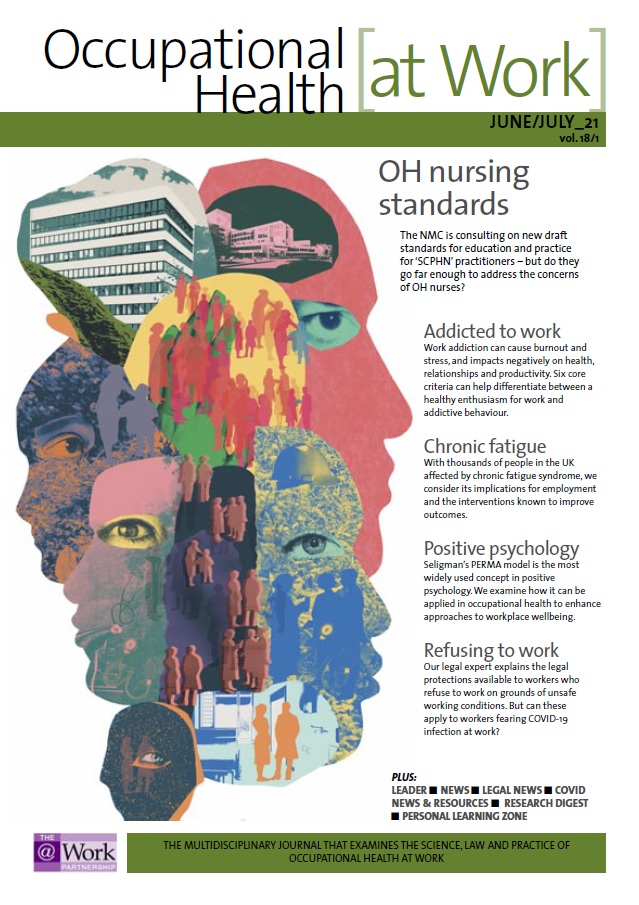June/July 2021 (vol. 18/1)
ContentsFeaturesNewsLegal
NewsResearch DigestResearch PlusCPD
 Work addiction, part 1
Work addiction, part 1
Part 1: demystifying workaholism and work addiction: when working hard no longer pays off positively
Summary:
Many people work long hours and are committed to their jobs, but what happens when this commitment becomes excessive and interferes with work–life balance? In the first of a two-part series, psychologists Annika Lindberg and Mark Griffiths discuss work addiction, its signs and symptoms and how it impacts on work and life.
According to the latest figures, as many as one in 10 people may be addicted to work with higher rates in occupations such as medicine and law. Work addiction can cause a range of negative consequences such as poor health, relationship difficulties and burnout – and, contrary to what one might expect, in this context the excess work can also lead to a worsening in performance and negative consequences for the workplace. Being aware of the signs and symptoms of work addiction can help workers as well as occupational health professionals identify when an individual’s engagement with work has become unhealthy…
Annika Lindberg is a chartered counselling psychologist who specialises in behavioural addictions. She runs her own private clinic and also works part time at the occupational health department at Guy’s and St Thomas’s hospital.
Dr Mark Griffiths is a chartered psychologist and distinguished professor of behavioural addiction at Nottingham Trent University.
Author: Lindberg A, Griffiths M
Occupational Health at Work June/July 2021 (vol. 18/1) pp13-16



